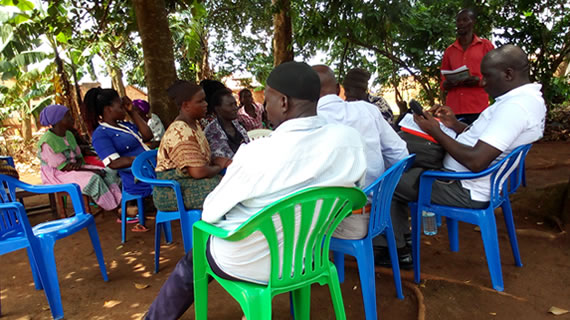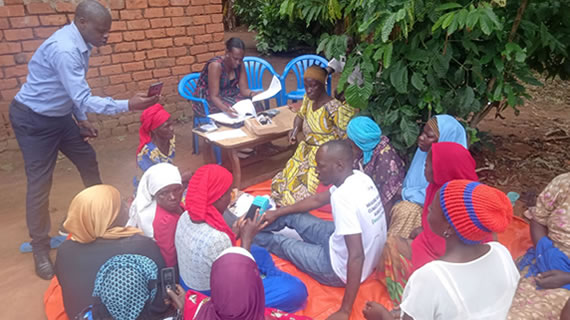Measures Against Climate Change In Agriculture (MACCA) Project.
“Leveraging Technology To Build Climate Resilient Agricultural Value Chains”
About MACCA Project:
MACCA will work with small holder maize farmers in 10 districts (Jinja, Iganga, Kamuli, Luuka, Buyende, Bugiri, Kaliro, Namutumba, Namayingo and Mayuge) that comprise of Busoga Kingdom in the Eastern Region of Uganda.
The Busoga sub-region has been selected as it is the region of focus as it has been ranked the poorest region (Uganda Bureau of Statistics house hold survey report 2019/2020) for the past decade in Uganda and the project will evolve assuring consistent sustainable production of maize, and hibiscus using agro-ecological practices, implementation of seasonal weather forecasts as an adaptation measure, developement of a climate data store, capacity building of extension workers and other regional stakeholders in CLIMTAG use, evaluation of CLIMTAG based adaption measures targeting longer term adaption change including farmer learning exposure visits to the Amelia Agro Africa demonstration farm.
The implementation of the project has been done through a consortium named the Agropreneur Initiative whose membership include Eisteeen Rising as the lead partner, Ordernemers Voor Odernemers as the advisory partner and the three implementation partners: Amelia Agro Africa, Akaboxi Limted and Rene Beverages.
The project is based in Jinja with an office for coordination of different activities and will explore the possibilities combining the CLIMTAG technology with the existing weather prediction solutions provided by the National Meteorologic Center in Uganda.
The project process is to develop a system that will address all levels of the maize value chain from planting, nurturing, harvesting, drying, storage, processing and marketing.
The profits the project makes from the revolving fund and other facilities under the consortium will be utilized as rewards for the best performing farmers, groups and communities. The rewards to farmers will come in the form of free inputs/equipment groups will get a contribution to their common savings while the communities will benefit from community projects such as wells, valley dams, irrigation systems ans shared equipment as motivational drivers.
What is Akaboxi doing in MACCA Project:
We are a microfinance that enable smallholder farmers in the community to have access to funds and trading of groups f agro-products. We provide smallholder farmers with access to funds and markets for their agro-products.
We have assigned every individual member in the box get micro-funds.
At the first quarter of the project, We registered 8 groups in Busoga region (3 groups in Kamuli, 2 groups in Luuka distict, 2 groups in Iganda district and 1 group in Mayuge) and we have sucessfully worked with 7 groups. the other 1 group wasn’t organized as we expected.
2023 we have enrolled more 10 groups.


